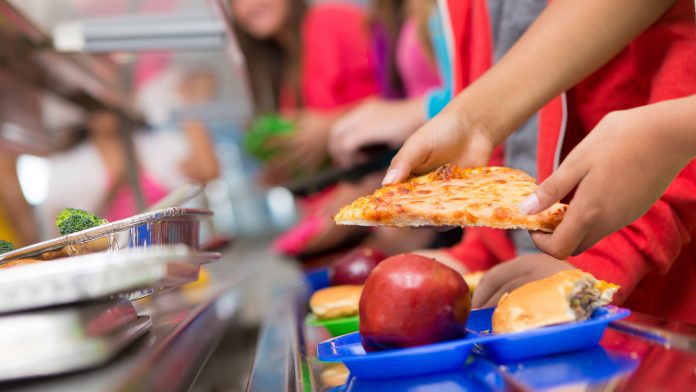
Evidence from an Imperial College London study suggests that 64% of school meals in the UK contain ultra-processed food, putting children at risk of poor health and obesity.
The study, published in Nutrients, analysed the dietary habits of over 3,000 children between 2008 and 2017, discovering that 64% of calories in meals provided by the school came from ultra-processed food.
The researchers explained that school meals are an important way for children to have a healthy and nutritious diet, especially for those from lower-income backgrounds. They believe urgent policy changes are required to cap the amount of processed food in school lunches and increase access to free school meals to enhance the health of UK children.
Dr Jennie Parnham, from the School of Public Health at Imperial College London and the first author of the study, said: “This is the first study to look at the extent of ultra-processed food content in school lunches for children of all ages. We need to view these findings as a call to action to invest in policies promoting healthy eating. Owing to the current cost of living crisis, school meals should be a way for all children to access a low-cost nutritious meal. Yet, our research suggests this is not currently the case.
“Ultra-processed foods are often cheap, readily available, and heavily marketed – often as healthy options. But these foods are also generally higher in salt, fat, sugar, and other additives and are linked with a range of poor health outcomes, so it’s important that people are aware of the health risks of children consuming them at high levels at school.
“As food prices continue to rise in the UK and globally, accessing affordable, healthy food will become more challenging for many more people. School meals should offer children from all backgrounds access to a healthy and minimally processed meal, yet they are currently failing to meet their potential.”
What is ultra-processed food?
Ultra-processed food comprises items that are heavily processed during their production; for example, frozen pizzas, ready meals, fizzy or milk-based drinks, and mass-produced packaged bread. Earlier studies have associated eating ultra-processed food with obesity and increased the risk of cardiovascular disease, Type 2 diabetes, and cancer.
Previous research from the team identified that UK children have the highest consumption of these foods in Europe. Worryingly, eating patterns from childhood usually extend into adulthood, meaning children may continue on a lifelong path toward obesity and poor health outcomes.
What is really in UK school meals?
The researchers utilised data from the National Diet and Nutrition Survey of more than 3,300 – 1,895 primary school children (aged four-11) and 1,408 secondary school children (aged 11-18). The team discovered that 75% of calories across all types of school lunches came from ultra-processed foods, which made up 82% of calories in packed lunches and 64% of calories in school meals.
The results showed that secondary schoolchildren had higher levels of ultra-processed food (70% of calories) compared to primary schoolchildren (61%). Moreover, children from lower-income backgrounds were more likely to have more of these foods (77% of calories) than children from higher-income backgrounds (71%).
What were the most common processed foods?
Around 50% of calories in primary school packed lunches came from ultra-processed bread and snacks, whereas only 13% of school meals contained these foods. Packed lunches mainly had fewer calories from minimally processed fruit and vegetables, meat and dairy, and starch compared to school meals. Ultra-processed drinks, including fizzy drinks, fruit juice, and yoghurt drinks, were some of the largest contributors.
Dr Eszter Vamos, from Imperial’s School of Public Health, concluded: “With the rising cost of living, many families are struggling to access healthy foods, and school meals might be the only opportunity for many children to have a healthy regular main meal. School meals are critically important in making sure that every child has access to an affordable, nutritious meal.
“Children in England consume very high levels of ultra-processed foods, and it is worrying that meals consumed at school contribute to this. Our findings call for urgent policy changes to improve the accessibility and quality of school meals as this could shape children’s overall diets considerably with important consequences for their current and future health.”
























